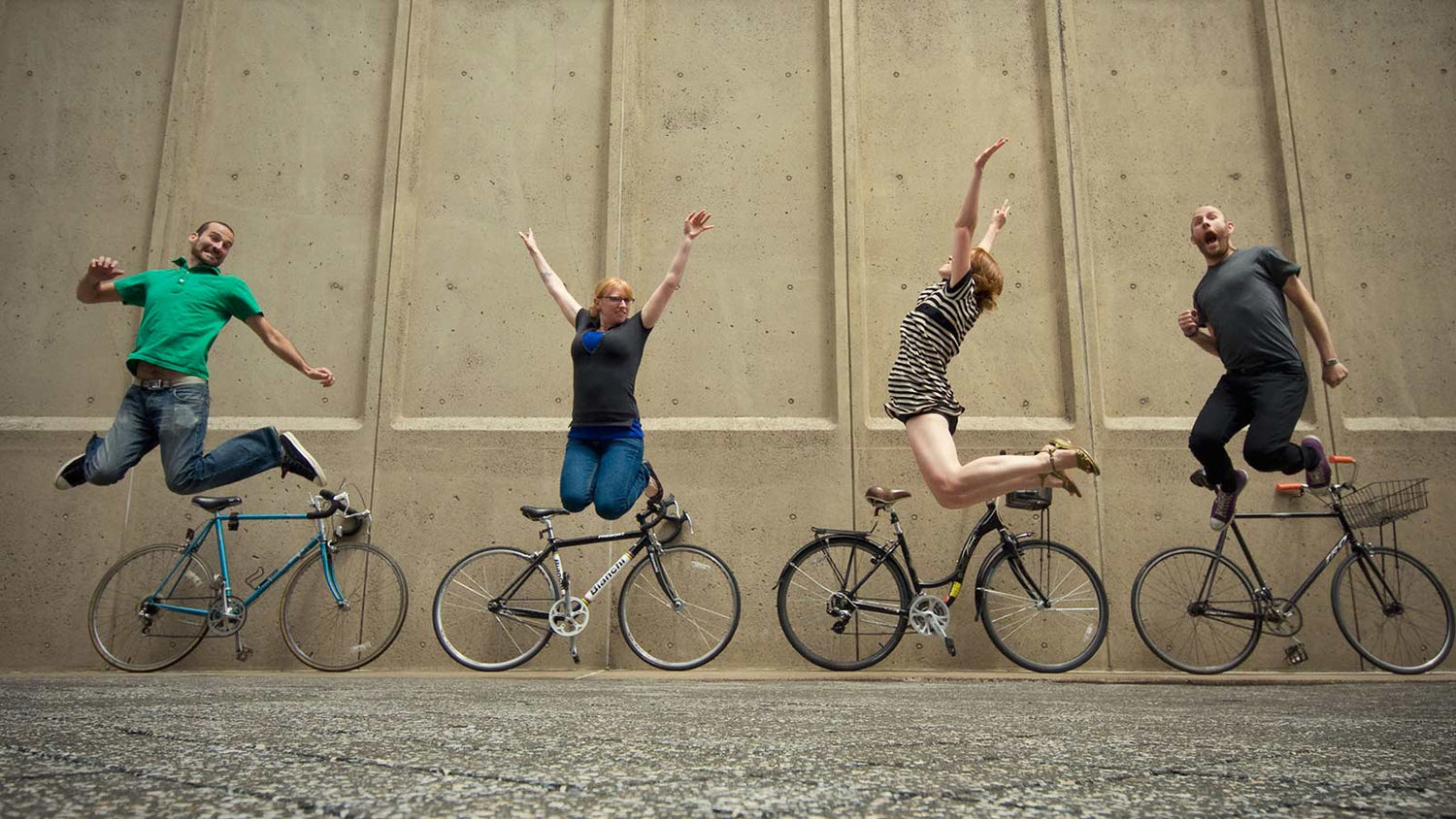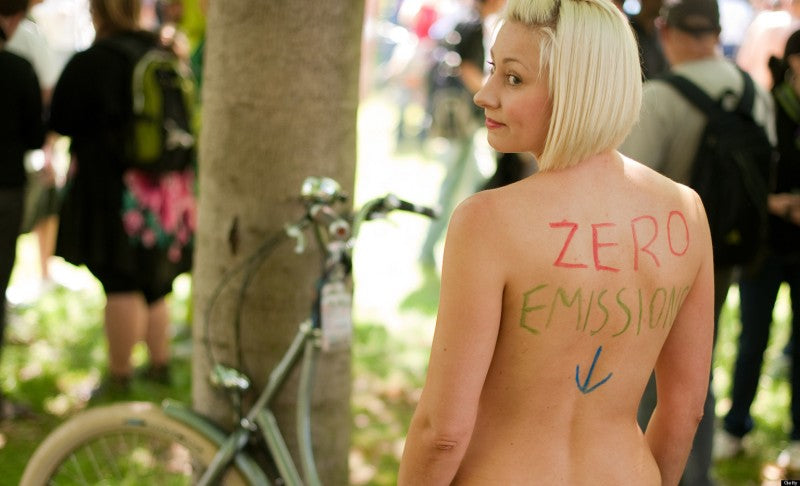
The Science Behind Why Cycling Makes Us Happier
You hear so many cyclists gushing about their daily rides that it might be a bit bewildering to imagine how biking could make so many people so happy. As it turns out, the reasons why are firmly grounded in science. Many people don't realize that happiness emerges from the state of the body as a whole - how well we sleep, our energy levels, the stress hormones coursing throughout our systems all play a role in determining how happy we feel. So how does cycling affect all these different areas of life?
Cycling saves you from the stress of driving
The automobile is the way most of us in North America get around. According to The Guardian drivers report feeling more in charge of their lives than public transit users do. However, despite the positive feelings of control and status experienced by drivers, half of them report disliking their daily commutes. Researchers at Hewlett-Packard found something even more surprising when they monitored the heart rates of British commuters. In rush hour traffic the driver’s heart rates ran as high as 145 beats per minute; that’s more than twice the average heart rate of a healthy young adult. In fact, the commuter's stress levels were worse than those observed in fighter pilots and riot police. The drivers also suffered from feelings of “impotence.” It's not difficult to understand why when you contrast the idealized power of the automobile with the constraining reality of traffic congestion.

Cycling is cheap
Consider the cost of owning an automobile. According to Forbes Magazine, the average annual operating cost of a car is $8,220, compared to a $308 annual operating cost of owning a bike. Cycling is 26 times cheaper!
Cycling gives you more energy
The only group of commuters who report enjoying their daily trip to work are the active ones. Pedestrians, runners and cyclists make up that group, and cyclists travel the fastest out of the bunch. But isn't all that biking going to make you feel more tired than you do already? Counter intuitively, expending the energy needed to bike actually leaves cyclists feeling more awake and less fatigued. A study published in Psychotherapy and Psychosomatics found that riding a bike actually lessened feelings of fatigue by 65% and boosted energy levels by 20%. That’s because exchanging a driving commute for a biking commute means trading in agonizing bursts of stressful cortisol for invigorating bursts of dopamine, a neurotransmitter linked to energy that is released when we exercise. What’s more, you don’t have to bike hard to reap the benefits – just 3 days a week biking at a low to moderate pace will do the trick. If you want to feel more awake, it’s actually worse to drive.
Cycling helps you sleep better
According to the American Psychological Association getting enough sleep is crucial to feeling happy. Stanford University School of Medicine researchers found that cycling for 20-30 minutes daily helped people with sedentary insomnia fall asleep twice as fast, and increased their time sleeping by nearly an hour. The benefit may also be due in part to the sunlight we soak up when we bike. According to Professor Jim Horne of Loughborough University’s Sleep Research Centre, sunlight helps maintain our natural circadian rhythms and decreases our bodily levels of cortisol, promoting deep regenerative sleep. Sunlight also promotes vitamin D production in the body and leads to better mood according to research at Zayed University's college of sustainability sciences and humanities.
Cycling improves your skin
If you worry that that additional sun exposure might damage your skin, think again! Bike Radar reported that biking helps protect the skin from the effects of UV radiation by increasing circulation, decreasing levels of toxins, and carrying oxygen and nutrients to the skin, siting research done at Stanford University. Exercise also promotes collagen production to keep the skin elastic and help it repair itself.
Cyclists inhale less pollution
Contrary to popular belief, all that biking actually means you will be exposed to less pollution than car, taxi, and bus riders! A study by the Imperial College of London determined that cyclists are exposed to about 1/5th the levels of pollution inhaled by people in cars.

Cycling promotes brain health
Still not convinced? Then think about the benefits cycling could have on your brain health. According to The Think Team Researchers from Illinois University found that participants performed 15% better on mental tests after improving their cardio-respiratory fitness by just 5% with biking. They suspect this was due to the fact that exercise helps the brain area responsible for memory – the hippocampus – generate new cells. This positive effect can help ward off Alzheimer’s in the same way.
Cycling makes your heart stronger
The benefits don’t stop at the brain: scientists at Purdue University found that cycling can decrease a person’s risk of heart disease by 50% if enjoyed regularly. Biking as little as 20 miles each week can decrease your risk of heart disease to half that of a sedentary person. This is great news considering the huge toll coping with illness takes on happiness.
What did we learn?
Now that we've gone over all the incredibly diverse ways that cycling improves the areas of life linked to happiness, all those joyful stories from cyclists make a lot more sense. Bike riders are so happy about biking because it makes them feel great on many different levels, and now you know why. It's literally a tune up for the entire body. Try it for a month...I dare you!
Related Posts

The 1 Less Bag: Helping Cyclists reduce their use of disposable plastic bags
The 1 Less bag is great for reducing the use of disposable plastic bags. To make sure you reap the f

The Gobagg: How to carry essentials on your bike and at your destination
The Gobagg is a super convenient cycling bag. It mounts on your frame and has a shoulder strap so yo

The GobaGG - Bicycle Frame Bag
The GobaGG just might be our most convenient cycling product yet. Take it with you on your bike and




